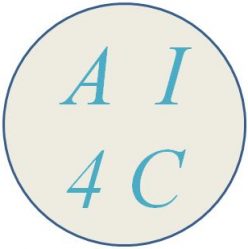Link to the slides.
The seminar is on May the 6th, at 14:00 and will be held remotely, in english.
Link to the zoom session: https://zoom.us/j/93683521817
Aida Alvera-Azcárate’s presentation is entitled:
« Filling gaps in ocean satellite data »
Abstract:
Satellite data offer an unequalled amount of information of the Earth’s surface, including the ocean. However, data measured using visible and infrared wavebands are affected by the presence of clouds and have therefore a large amount of missing data (on average, clouds cover about 75% of the Earth). The spatial and temporal scales of variability in the ocean require techniques able to handle undersampling of the dominant scales of variability. The GHER (GeoHydrodynamics and Environment Research) of the University of Liege in Belgium has been working over the last two decades on interpolation techniques for satellite and in situ ocean data. In this talk we will focus on techniques developed for satellite data. We’ll start with DINEOF – Data Interpolating Empirical Orthogonal Functions- which is a data-driven technique using EOFs to infer missing information in satellite datasets. We will follow with a more recent development, DINCAE – Data Interpolating Convolutional AutoEncoder. Training a neural network with incomplete data is problematic, and this is overcome in DINCAE by using the satellite data and its expected error variance as input. The autoencoder provides the reconstructed field along with its expected error variance as output. We will provide examples of reconstructed satellite data for several variables, like sea surface temperature, chlorophyll concentration, and some recent developments with DINCAE to grid altimetry data to complete fields.
Short bios:
Aida Alvera-Azcárate is a researcher at the GHER (GeoHydrodynamics and Environment Research) of the University of Liege in Belgium. She did a PhD in Science at the University of Liege and made a post-doc at the University of South Florida (US) before joining the GHER in 2007 where she studies the ocean using satellite and in situ data and works in the development of interpolation techniques to reconstruct satellite data.
Alexander Barth is a researcher working at the University of Liege (Belgium) in the GHER group (GeoHydrodynamics and Environment Research). He did a PhD on nested numerical ocean models and data assimilation. Currently he is working on variational analysis schemes for climatologies and neural networks to reconstruct missing data.
